|
Gravesend Road
Fairseat / Trosley
Vigo
https://whatpub.com/vigo-inn
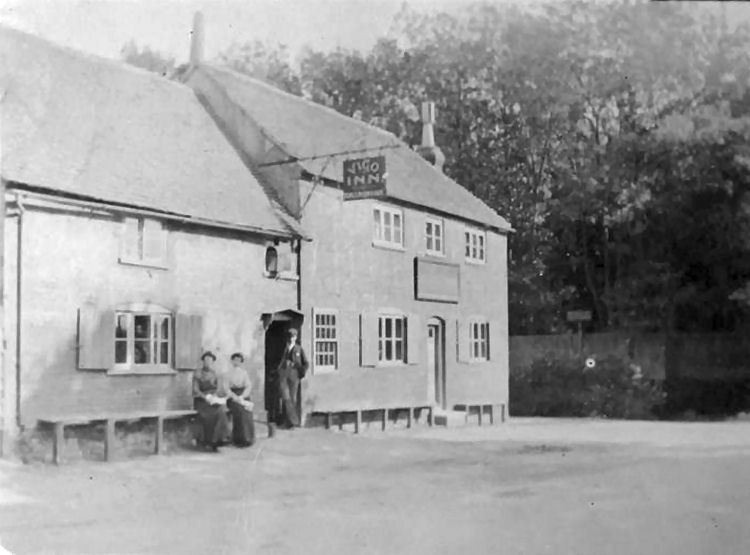
Above photo, date unknown. |
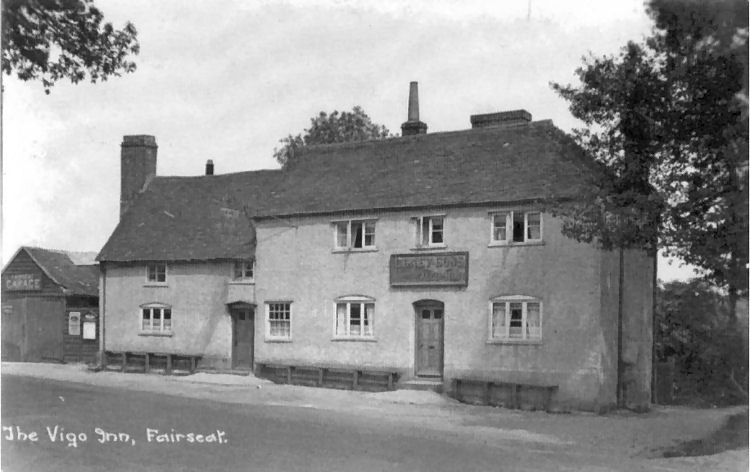
Above postcard, date unknown. |
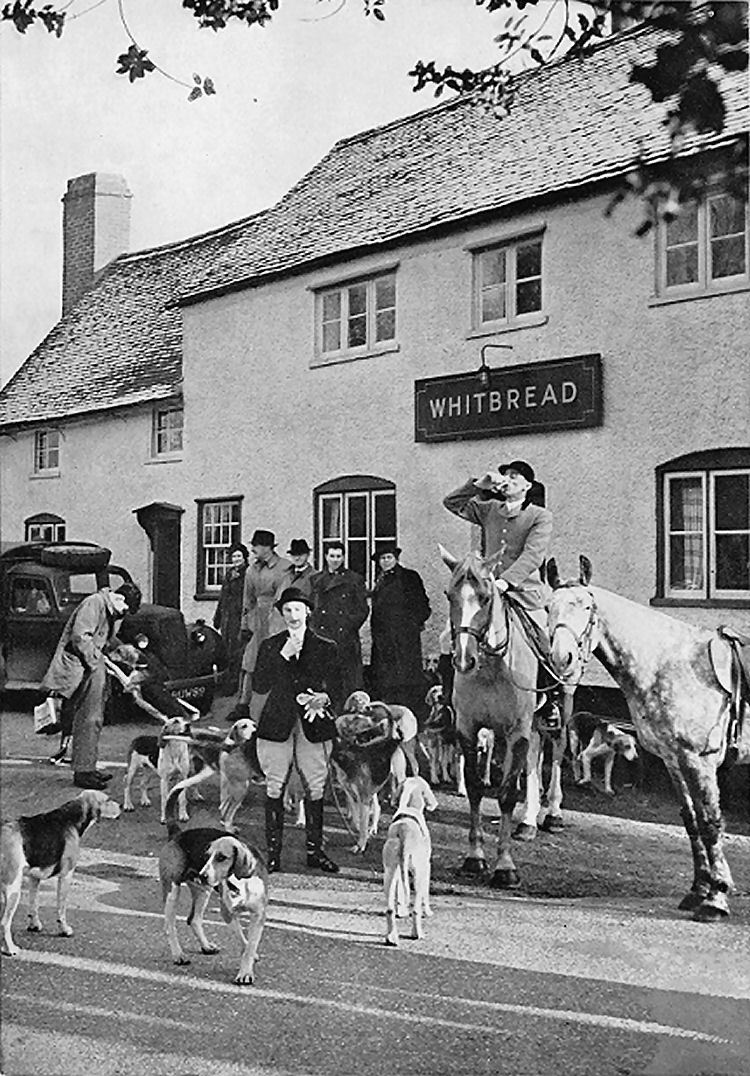
Above photo, 1971, kindly sent by Rory Kehoe. |
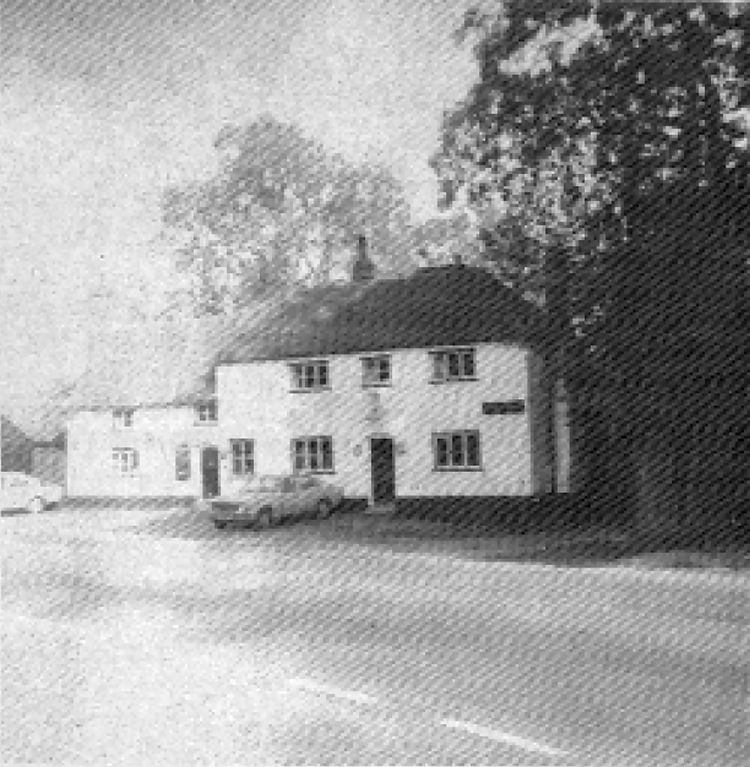
Above photo from the book, 1975, Pubs of Meopham by Jim Carley. |
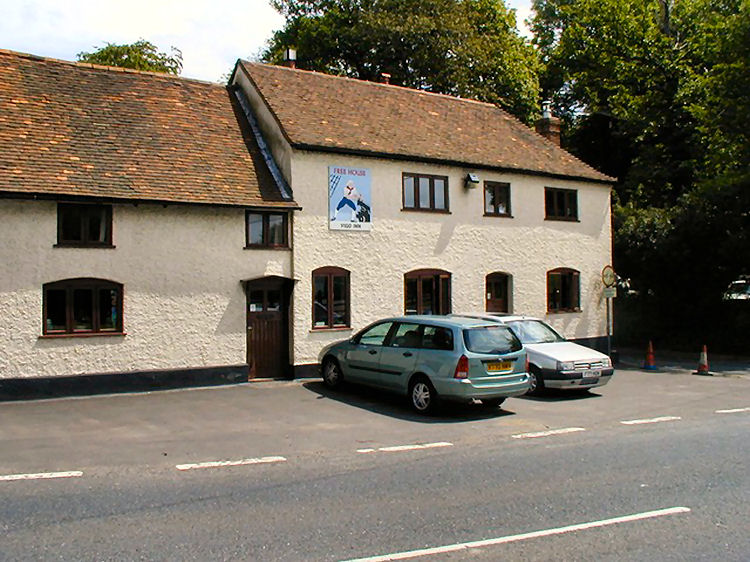
Above photo, June 2000, kindly sent by Philip Dymott. |
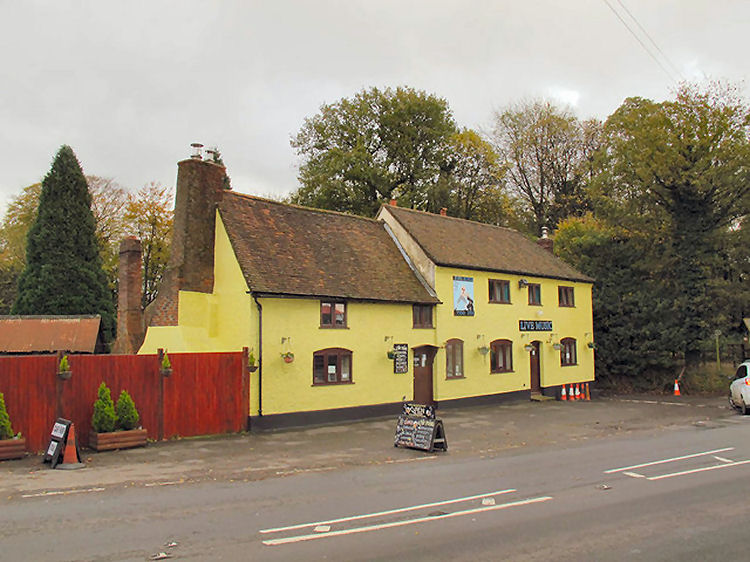
Above photo 2013 by Steven Craven
Creative Commons Licence. |
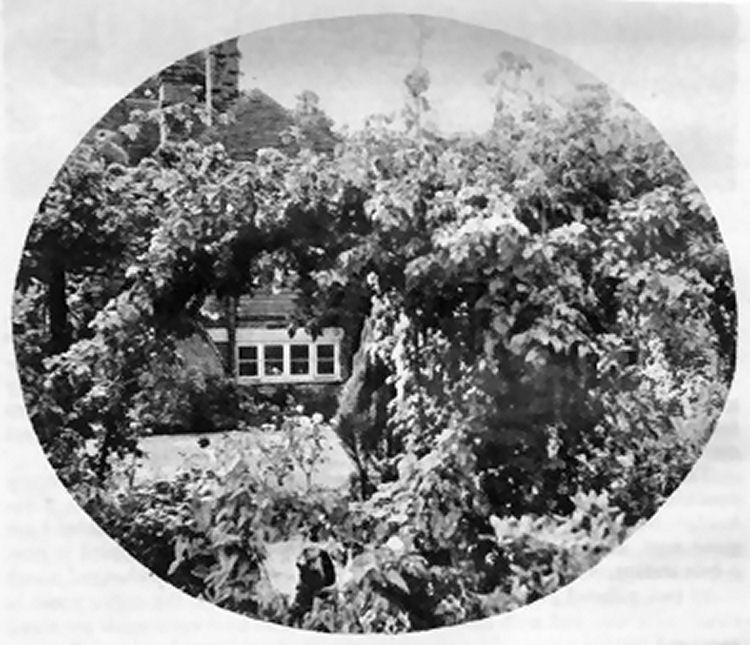
Above postcard, date unknown. |
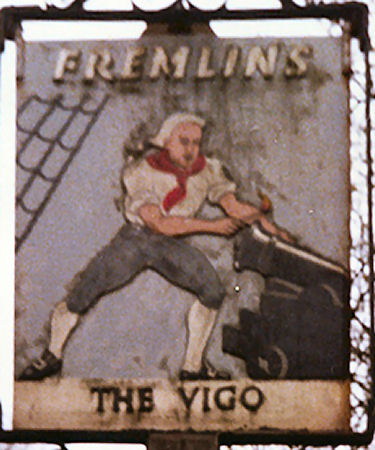 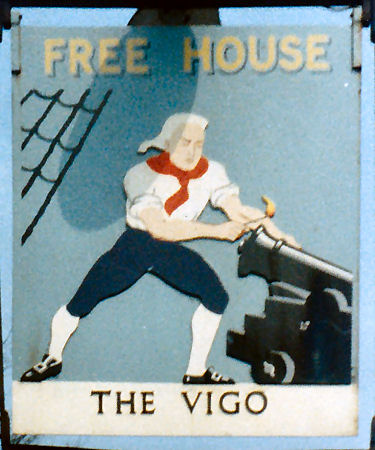
Above sign left 1978, sign right, May 1985.
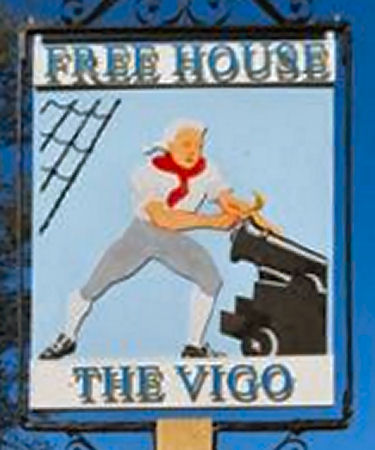
Sign above 2003. |
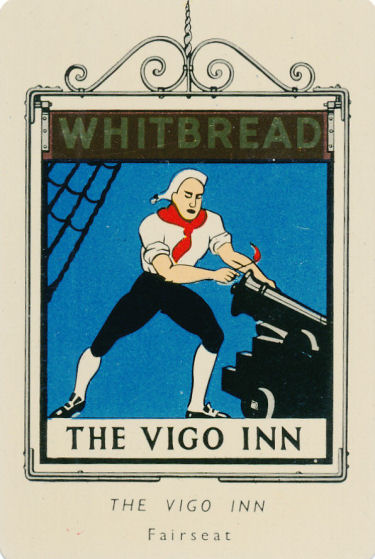 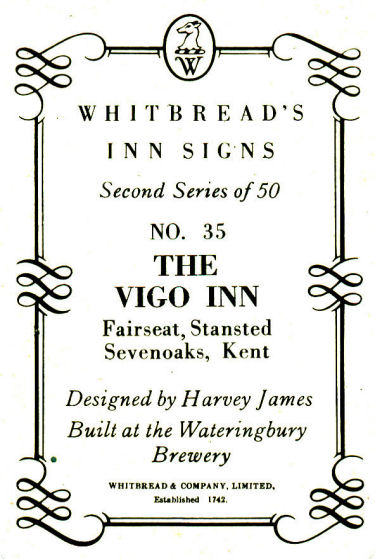
Above aluminium card issued 1950. Sign series 2 number 35. |
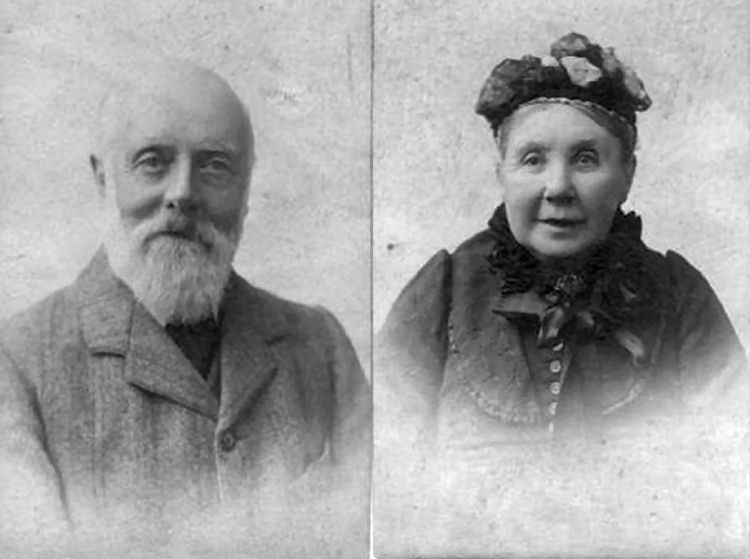
Above photo showing John and Sarah Manley, licensees 1871-1901. Kindly
sent by David Pearce. |
|
From The Sphere, Saturday 07 May, 1960.
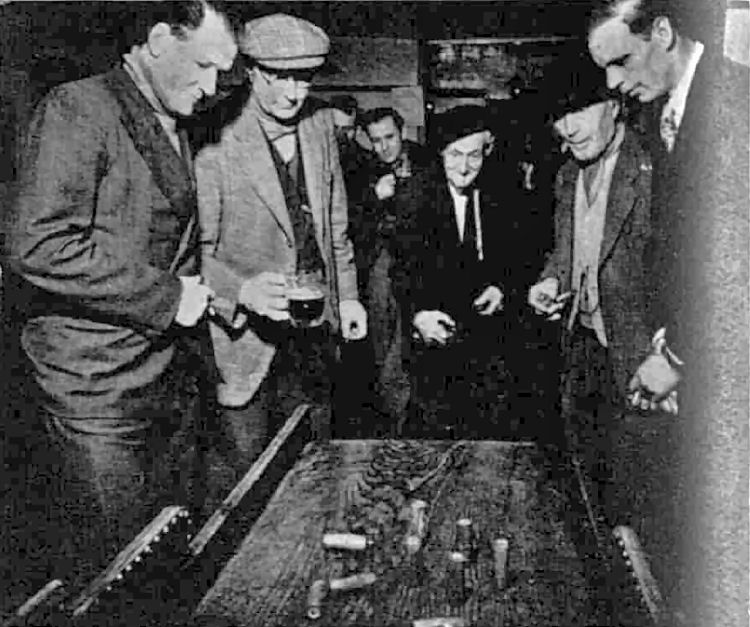
Above photo showing what was described as "Pocket Skittles"
at the "Vigo" in 1960.
I believe this is also known as "Dadlums." |
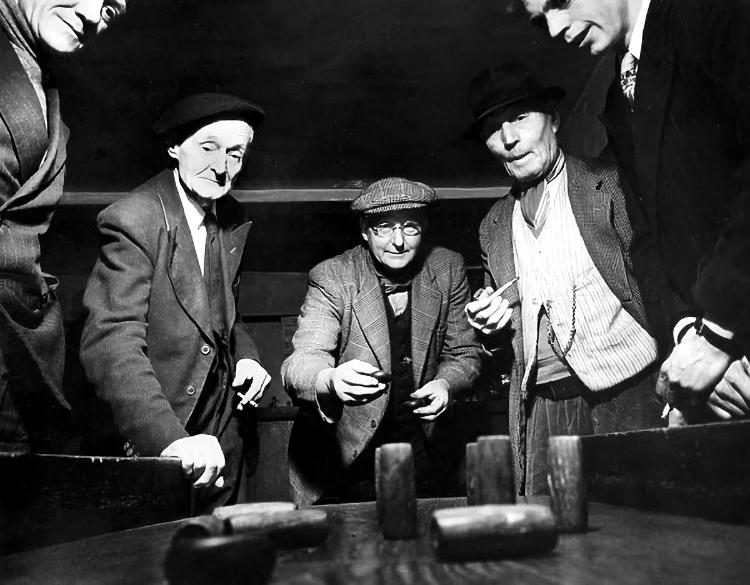
Above photo, April 1952. |
|
From the Kentish Gazette, 5 December 1848.
The hounds of Thomas Colyer, Esq., met at the "Vigo Inn" on Saturday,
attended by a numerous field of horsemen, when, after a fine run of two
hours, Reynard made his escape, and was not to be found again. The day
was very fine, and allowed a treat to the lovers of this spot.
|
|
Maidstone Journal and Kentish Advertiser, 24 January 1854.
JEAL.
On Tuesday, Mr. Jeremiah Jeal, aged 84, highly respected. Deceased had
been landlord of the "Vigo Inn," at Stansted nearly ?? years.
|
|
Maidstone Journal and Kentish Advertiser, Tuesday 14 March 1854.
The late landlord of the "Vigo," Jeremiah Jeal, who is now dead, had had
56 licenses granted to him.
|
|
Information below taken from their web site, 2014.
Allegedly there has been a pub on this site since 1471, and parts of the
existing buildings are said to date from that time. First known as the
"Upper Drovers," but given its present name by a sailor returning from the
1702 Battle of Vigo Bay, when England & Holland fought Spain in the War
of the Spanish Succession. The sailor used his share of the treasure,
captured during the English victory under Admiral George Rooke, to
purchase the inn.
THE VIGO INN
In 1930 the pub was taken over by the Ashwell family. During the
Second World War Mr & Mrs Ashwell were host to many of the servicemen
from both the Wrotham pre officer cadet training camp (on the site of
the present Vigo Village), and air force personnel from the Battle of
Britain West Malling Air Station (now Kings Hill).
After the death of her husband Vernon in 1970, Mrs Lillian Ashwell
ran the pub for many years herself. She was a formidable but very
popular local character. She became the first lady president of a rugby
club in England, when in 1968 some pub regulars formed Vigo RFC, whose
first matches were held in the field at the back of the pub.
Although long since moved to their own ground at Swanswood Field, the
memory of Lillian Ashwell is still held in high regard at the club.
Another game played at the pub is that of Dadlums. This is an old
English game of table skittles, and the 1966 Watney Book of Pub Games
lists the Vigo Inn as one of the few venues where the game was played.
The pub still boasts one of the last remaining Dadlums tables in the
country, thought to be over 150 years old. It is good to see the game is
being revived, with a local team playing fortnightly matches on Sunday
evenings.
At the time of her own death in 1982 aged 81, Lillian Ashwell had
been working behind the bar for 52 years and was possibly the oldest
working landlady in the UK. The Vigo Inn passed to Mrs Ashwell's son &
daughter in law, Peter & Peta. A few changes were made including an
interior refurbishment, but the essential character of the place was not
altered. It even became one of the first No Smoking pubs in Kent, before
the Government's UK wide ban was introduced.
Sadly some three years ago the pub closed, and many locals thought
time had finally been called for this historic local landmark. But Andy
and Val have now taken the place over, and have relaunched the pub with
a range of live music from bands, with open mic Wednesdays, acoustic
Thursday nights. Room, bar and marquee hire set in five and a half
acres.
|
|
From
http://www.kenthistoryforum.co.uk April 2014.
The Battle of Vigo
Bay, after which the pub is reputedly named, was a naval engagement
fought on 23 October 1702 during the opening years of the War of the
Spanish Succession. The engagement followed an Anglo-Dutch attempt to
capture the Spanish port of Cádiz in September in an effort to secure a
naval base in the Iberian Peninsula. From this station the Allies had
hoped to conduct operations in the western Mediterranean Sea,
particularly against the French at Toulon. The amphibious assault,
however, had proved a disaster, but as Admiral George Rooke retreated
home in early October, he received news that the Spanish treasure fleet
from America, laden with silver and merchandise, had entered Vigo Bay in
northern Spain. Philips van Almonde convinced Rooke to attack the
treasure ships, despite the lateness of the year and the fact that the
vessels were protected by French ships-of-the-line.
The engagement was an overwhelming naval success for the Allies: the
entire French escort fleet, under the command of Château-Renault,
together with the Spanish galleons and transports under Manuel de
Velasco, had either been captured or destroyed. Yet because most of the
treasure had been off-loaded before the attack, capturing the bulk of
the silver cargo had eluded Rooke. Nevertheless, the victory was a
welcome boost to Allied morale and had helped persuade the Portuguese
King, Peter II, to abandon his earlier treaty with the French, and join
the Grand Alliance.
Despite most of the treasure having been unloaded before the battle
the British fleet still made a good haul. The Master of the Mint, Isaac
Newton, stated in June 1703 that the total metal handed in to him by
that date was 4504 lb 2 oz of silver (just over 2,000 kg), and 7 lb 8 oz
and 13 dwt of gold (about 3.4 kg), estimated at a value of £14,000.
|
|
From
http://www.kenthistoryforum.co.uk April 2014.
Taken from Inns of Kent by G M Rainbird 1949.
The Vigo was once called the Drovers Inn and is reputed to have been
renamed by a local man who, returning from the wars, settled down to
husbandry and a brewhouse. He renamed his house in honour of Admiral
Rookes victory at Vigo at which he himself is said to have fought, and
so earned the prize money from which he bought his inn. The Vigo was
built in 1471 or thereabouts and was fro a century or two a posting
house on the road to Gravesend. The back door is as wide as it is to
allow wet horse cloths and rugs to be brought into the kitchen and dried
round one of the 3 chimney corners. Such an inn as the Vigo and in such
a spot, was necessarily subject to all the excursions and alarums that
were going, and it is not strange to hear that when the roof was being
reconstructed about 10 years ago, a small chamber or hide-out was found
between the inner and outer walls of the tap chimney. Whether is was, as
the romantics have it, a smugglers cache, or as stated by the realists,
a place where a good citizen could hide from the press gangs operating
from Chatham and Gravesend, we know not. Certainly in a mere four and a
half centuries it may have been used for many purposes legal and
illegal.
The old toll gate across the road was pulled down about 40 years ago,
but it is commemorated in a footpath which by-passed it, known locally
as 'Savepenny Lane' since it is said to have been used by drovers to
save toll. The inn itself is just another that the reader will by now
have imagined, low tap room and bars, beams and ingles and the cheerful
chatter which always prevades a well run bar.
The Vigo is a 'hall'-type inn, as is common in very old houses; the
bar is more or less in front of the door, while the tap room and other
bars run out from it, thus enabling the landlord to keep a roving eye on
the needs of all classes of patron simultaneously. At the Vigo is played
in the tap room a game rarely seen, a form of table skittles, known
locally as 'Dadlums'. On a low platform about 6 feet long miniature pins
are placed and thrown down by miniature 'cheeses' about 3 inches in
diameter from about 5 feet away.
The gardens of The Vigo are old and lovely and contain everything the
garden of an English inn should contain. Apart from the more usual
vegetables and plants there is a cotoneaste, to which hornets come each
year.
|
It is reputed to have been renamed by a local man after he
purchased it with "prize money" from his time under Admiral Rooke at the
battle of Vigo Bay during Franco/Spanish War in 1702.
I believe the pub finally closed again on 31 October 2014 and has now (2017) been
converted into a private residence.
LICENSEE LIST
JEAL Jeremiah 1841-Jan/54 dec'd (also farmer age 80 in 1851 ) )
MANLEY John Mar/1854-1903+ (also carpenter age 55 in 1901 ) )
  
LIVERSAGE Robert William 1911+ (age 42 in 1911 ) )
LEWIS George Charles 1913+

ATKINS Walter 1922+

ASHWELL Vernon Stuart 1938-39+ (age 48 in 1939)

https://pubwiki.co.uk/Vigo.shtml
http://www.closedpubs.co.uk/vigo.html
 Census Census
 From the Post Office Directory 1874 From the Post Office Directory 1874
 Maidstone
and Kentish Journal Maidstone
and Kentish Journal
 From the Kelly's Directory 1903 From the Kelly's Directory 1903
 From the Post Office Directory 1913 From the Post Office Directory 1913
 From the Post Office Directory 1922 From the Post Office Directory 1922
 From the Post Office Directory 1938 From the Post Office Directory 1938
|














